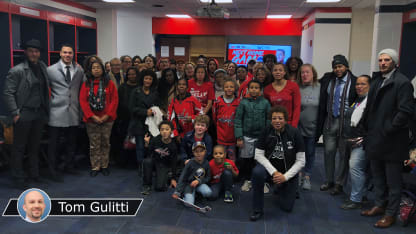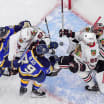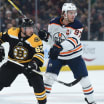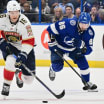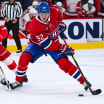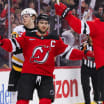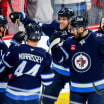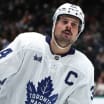WASHINGTON -- To Renee Hess, the next step for the Black Girl Hockey Club was a natural one.
The associate director of service-learning for community engagement at La Sierra University in Riverside, California, Hess founded the club at the beginning of this season because she wanted to create a comfortable atmosphere for black women to watch hockey games together. But successful outings to Washington, New York (Manhattan and Brooklyn) and Nashville and the exponential growth in membership to more than 200 got her thinking about what the group could do beyond going to games.
So earlier this month, Hess began the process of transforming the Black Girl Hockey Club into a nonprofit organization that can help others get involved and give back to a game that brings her joy. Hess hopes to have that nonprofit certification complete before the start of next season.
"This is exactly what I wanted. This was a dream," said Hess, who also is an associate English professor at La Sierra University and a freelance pop culture writer. "In my day job, I work as a community organizer, so this is second nature for me. I teach as well, but my full-time job is working in community service at the university. So, this ability to help others through a platform that magnifies the voices of black women is really something that I cherish and I'm looking forward to building in the future."
In addition to funding more outings for the club, Hess envisions the money it raises helping kids and fans of color connect with the NHL teams in their markets and also assisting young black girls who play hockey so they can continue their development and potentially reach the college and professional level.
Metropolitan Riveters defenseman Kelsey Koelzer, a Horsham, Pennsylvania native who became the first African-American selected with the No. 1 pick in National Women's Hockey League Draft in 2016, remembers few instances when she was singled out because of her sex or race when she was growing up, but knows there are others who weren't as fortunate.
That's why the 23-year-old is a big supporter of the Black Girl Hockey Club, which embodies the principles of the NHL's Hockey is for Everyone initiative.
"That to me is the most important aspect of this; just making sure everyone feels welcome in the sport," Koelzer said. "They might not necessarily have the same sense of community that I always had with hockey, so to have a group like this that would make other people feel more comfortable going even just to watch the sport, not necessarily start playing the sport, is great. When you can grow the hockey community whether it be at a player base or a fanbase, it's always a win."
* * * *
Hess became interested in hockey when she ran into a crowd of excited Pittsburgh Penguins fans following a game while she was in Pittsburgh for academic conference in 2011. The 39-year-old learned later that the Penguins defeated the New Jersey Devils 1-0 in a shootout and became curious.
Before long, she was a Penguins fan.
"I kind of started reading about it, researching. I listened to games," she said. "Then, when I went to my first live game I was hooked after that."
When Hess went to her first game in 2015, she brought her husband, Glenn, and his brother with her to Honda Center to see the Anaheim Ducks play. Last season, Hess took her 16-year-old daughter, Lola, to her first game.
Hess noticed that she rarely saw other black women at the games. That sparked her quest to find others like her.
Through a callout on social media she connected with other black female fans and they started a group chat. That led to a conversation about attending a game together.
"Everybody wanted to go to a game, but nobody really felt comfortable going," Hess said. "So, what better way to facilitate the love of hockey than by inviting hockey moms and their kids, the fans and the players, and getting them all together to enjoy a game?"
The club picked the Washington Capitals' home game against the Buffalo Sabres at Capital One Arena on Dec. 15 for its inaugural outing because many of the members live in the East and because the Capitals had two black players -- forward Devante Smith-Pelly (now with Washington's American Hockey League affiliate in Hershey) and defenseman Madison Bowey (since traded to the Detroit Red Wings on Feb. 22) -- and two black members of their ownership group, Earl Stafford and Sheila Johnson.
A group of more than 40, ranging in age from 6 to 91, made the trip to Washington. Several were hockey moms who brought their hockey-playing daughters and sons, including Alexis Arnold, who traveled from Rochester, New York with her 6-year-old son, Jaelyn.
"It lets you know there's this whole network out there, I'm not alone," Arnold said of the club. "I'm not ashamed to be black and love hockey. I love it. I'm a proud hockey mom. I love the sport. I always really liked football and basketball. I played basketball. But I actually would love to play hockey. I want to get out on the ice and play."
* * * *
The success of the Washington gathering led to three more during the Black History Month in February.
